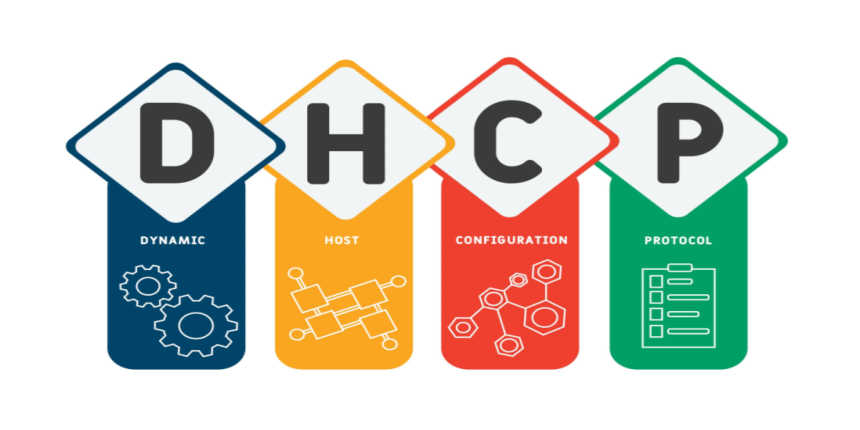DHCP Full Form
What is the full form of DHCP?
The full form of DHCP is Dynamic Host Configuration Protocol. The critical feature on users of an enterprise network communication. DHCP helps enterprises to smoothly manage the allocation of IP addresses to end-user clients' devices such as desktops, laptops, cellphones, etc.
Windows Server 2016 consists of DHCP Server, that's a non-compulsory networking server function that you may set up for your community to hire IP addresses and different statistics to DHCP clients. All Windows-primarily based purchaser working structures consist of the DHCP purchaser as a part of TCP/IP, and the DHCP purchaser is enabled via way of means of default.
- What is the full form of DHCP?
- DHCP History
- Basic Functioning
- Characteristics
- DHCP Lease Time
- DHCP Relay Agent
- Advantages of DHCP
- Disadvantages of DHCP

DHCP History
DHCP was used for the first time in 1993. It was built on the Bootstrap Protocol (BOOTP) of 1985. The Dynamic Host Configuration Protocol is in RFC 2131 and can be found under UDP 67 and 68 the number is port
Basic Functioning
The dynamically configuring a device with dynamic IP from a DHCP server, play into three things: the IP address (of course), the subnet mask, and the default gateway.
Characteristics
Centralizes configuration stated Are TCP/IP configurations
changes for clients to be updated frequently, and those for portable devices that move to different locations on a wireless network.
The forwarding of initial DHCP messages by use of a DHCP relay agent eliminates the need for a DHCP server on the subnet.
To define TCP/IP ability configurations from a central location.
DHCP Lease Time
DHCP work with default settings is large with the same server to server. However, different DHCP servers assign IP addresses for different before which are changed with a fresh IP address on a specific end device. In the majority of cases, the DHCP's small time is 14 days. However, with the growing number of users and mobile environments, enterprises have found that their pool of available addresses can run out quickly.
DHCP Relay Agent
A DHCP relay agent is a way for the network to listen to DHCP server discovery broadcast messages from client devices, change broadcast requests into a unicast packet, and forward requests onto the DHCP server in a different part of the network. The centralizes the IP addresses on the network management.
Advantages of DHCP
For use and configuration, network parameters are to be entered.
the existing IP addresses can be used optimally.
the frequently changed locations, it is impossible that mobile devices to configure constantly.
DHCP system automatically offers the advantage of uncomplicated and applicability.
Disadvantages of DHCP
The DHCP problem is that clients accept any server. Accordingly, when the server is in the vicinity, the client connects with the server, and this server may send invalid data to the client.
Security of MAC address is not provided.
Frequently Asked Questions (FAQs)
Dynamic Host Configuration Protocol (DHCP) is the use of a network protocol that configures networevices to communicate on an IP network. A DHCP client uses the DHCP protocol to acquire configuration information, an IP address, a default route, and one or more DNS server addresses from a DHCP server.
The four steps of the DHCP process are:
DHCPDISCOVER: The client sends a broadcast message requesting DHCP service.
DHCPOFFER: The DHCP server responds with an offer of IP address and other configuration information.
DHCPREQUEST: The client accepts the offer and requests the offered IP address and other configuration information.
DHCPACK: The DHCP server acknowledges the request and assigns the IP address and other configuration information to the client.
DHCP reduces setup problems brought on by manual IP address configuration, such as typos or address conflicts brought on by simultaneously assigning IP addresses to multiple computers.
The Dynamic Host Configuration Protocol (DHCP) uses port number 67 for the server side and port number 68 for the client side.
The DHCP server is usually located on a network server or a router, and it is responsible for managing the assignment of IP addresses to devices on the network. When a device connects to the network, it sends a request for an IP address to the DHCP server. The server then assigns an available IP address to the device, along with the subnet mask, default gateway, and other network configuration settings. The device can then communicate with other devices on the network using this assigned IP address.
